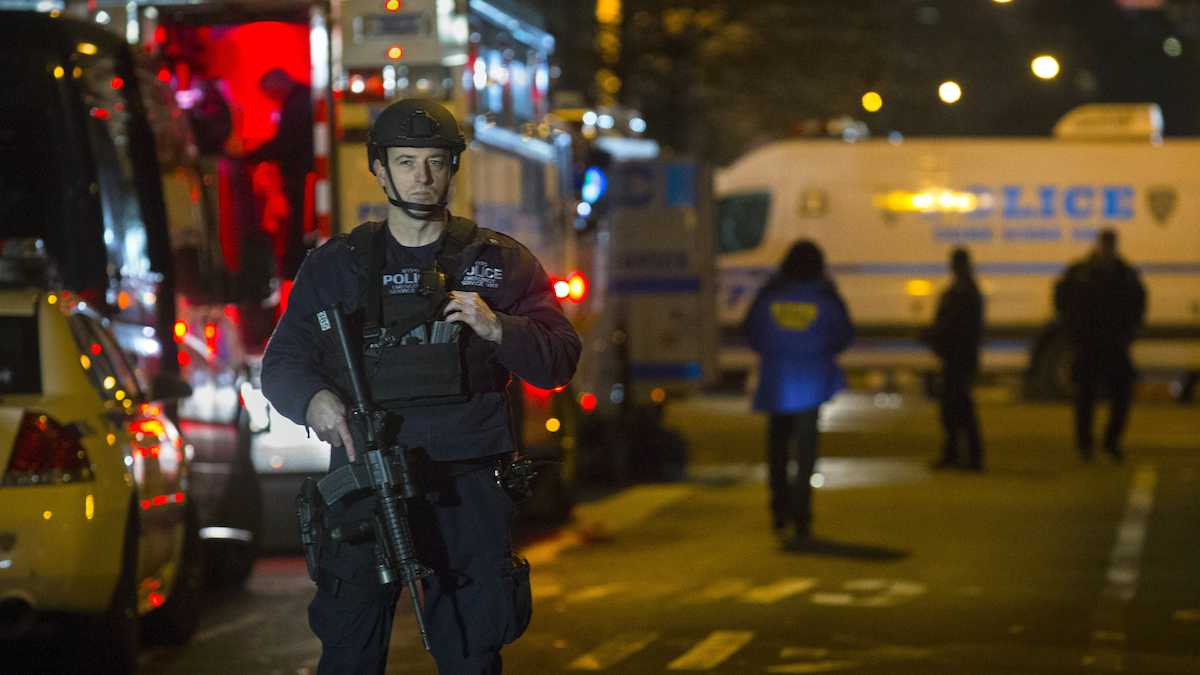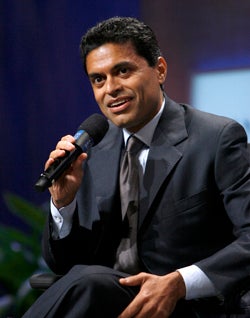Fareed Zakaria: Americans’ fear of terror attacks largely unfounded

(AP File Photo)
 Although recent terror attacks and Islamic extremism in the Middle East have led many Americans to live in fear, their worries are largely unfounded, CNN host and Washington Post journalist Fareed Zakaria said in a packed lecture hall at Princeton University on Monday.
Although recent terror attacks and Islamic extremism in the Middle East have led many Americans to live in fear, their worries are largely unfounded, CNN host and Washington Post journalist Fareed Zakaria said in a packed lecture hall at Princeton University on Monday.
While there has been an uptick in terrorism, attacks are largely confined to Afghanistan, Pakistan, Iraq, Syria, Yemen and Lybia, Zakaria said. Since the 9/11 attacks in New York, 45 Americans have died of Islamic terrorism, while 150,000 have succumbed to gun violence, he added.
“The world is not being as powerfully shaken by these forces as people think,” Zakaria said of Islamic terrorism.
He added that the price of oil, a key Middle Eastern export, has fallen drastically in the last five years despite the surge of the Islamic terrorist group ISIS. Markets are often good indicators of important global forces, Zakaria said, and the fact that they are not panicked by instability in the Middle East is telling.
However, countries such as Iraq and Lybia are still dealing with the aftermath of toppled dictatorships, Zakaria said. Getting rid of Saddam Hussein essentially left Iraq stateless, he explained, since no administrative authority was left to maintain social order. Many countries in the Middle East face the same problem, Zakaria noted.
In light of political chaos and personal insecurity, people gravitate towards what they believe will give them security and identity, Zakaria said. Rather than adhering to the state, people identify as Sunnis or Shiites, for example.
“It’s much more difficult to create an Iraqi national army,” Zakaria said. “The Kurds want to fight for Kyrgyzstan, the Shias for the Shia-side.” This, in turn, makes it more difficult to combat ISIS, Zakaria said.
The American vision of finding a group of political moderates in the Middle East with whom to defeat ISIS, control Damascus and impose liberal democracy is very unrealistic, Zakaria said. Instead, the U.S. should consider the political landscape and repercussions in the countries they intervene in, he added.
Americans are not only anxious about terrorism and political unrest in the Middle East, but about the general state of the country, Zakaria said.
“Donald Trump keeps saying we’re losing, we’re losers,” Zakaria said. However, the United States is growing at twice the rate of Europe and four times the rate of Japan, Zakaria noted, and continues to have the most dynamic economy.
“The U.S. owns the industries of the future in a way that it has never done before,” Zakaria said, adding that it is the leading country in the tech industry. The country’s demographics are very dynamic, he said, noting that the U.S. lets in more legal immigrants than the rest of the world put together.
The United States also tackled the 2008 economic crisis quickly and effectively, Zakaria said. Aggressive monetary and fiscal policy, the recapitalization of the banking sector and support for other sectors such as the auto industry took place only five months after the crisis hit, and at a time when the country was most vulnerable.
“That’s extraordinary,” Zakaria said. “The United States handled the crisis best and came out of it best.”
Despite a recent surge in American pessimism, Zakaria said he would probably still choose to emigrate to the United States as a hopeful 18-year old.
WHYY is your source for fact-based, in-depth journalism and information. As a nonprofit organization, we rely on financial support from readers like you. Please give today.




